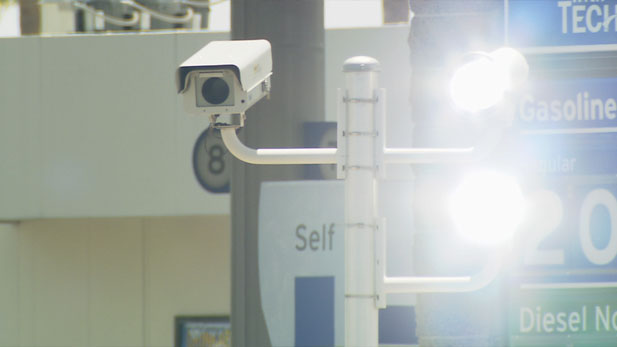 Camera to catch red light runners in Tucson flashes to illuminate the intersection .
Camera to catch red light runners in Tucson flashes to illuminate the intersection .
Listen:
Tucsonans voted to ban red-light and speeding cameras Tuesday by a nearly 2-to-1 margin.
The ban takes effect when the election results are certified Nov. 17, under an "emergency" clause in the initiative, called Proposition 201. It amends the city code to prohibit the use of automatic red light and speed radar cameras as evidence for issuing traffic violations.
With most votes counted Wednesday, Proposition 201 had 65.5 percent "yes" votes and 34.5 percent "no" votes.
There have been eight traffic cameras at intersections throughout the city and two mobile radar vans to monitor for speeding violations.
Grassroots organization Tucson Traffic Justice, which garnered more than 27,000 valid petition signatures to get the ban on the ballot, argues the traffic cameras are not actually all that effective in making the streets safer.
John Kromko, a former Arizona legislator who is spearheading the effort to ban the cameras, said changes to state law and the contracting of the third-party company to manage the cameras is nothing more than a money-making scheme.
"The cameras often result in fines of $400 for being as little as one-hundredth of a second late in clearing an intersection. Also, there is widespread belief that the yellow lights are deliberately set short so that people who intend to obey the law often can't avoid tickets," Kromko said in an interview with AZPM in July.
Advocates for the cameras said the use of such technology saves lives and reduces the amount of traffic violations.
Since cameras were installed Tucson, the number of collisions have been reduced by 70 percent in the intersections where they are present, said a report issued by the Tucson Police Department in September.
There were 57 crashes in the intersections with cameras last year, compared to 188 collisions before they were installed in 2006.



By submitting your comments, you hereby give AZPM the right to post your comments and potentially use them in any other form of media operated by this institution.